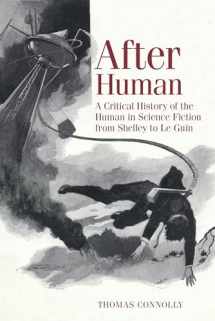
After Human: A Critical History of the Human in Science Fiction from Shelley to Le Guin (Liverpool Science Fiction Texts and Studies, 69)
Book details
Summary
Description
Shortlisted for the British Fantasy Awards (Non-Fiction) 2022
Shortlisted for the Locus Science Fiction Foundation Non-Fiction Award 2022
SF has long been understood as a literature of radical potential, capable of imagining entirely new worlds and ways of being. Yet SF has been slow to embrace posthumanist ideas about the human subject. The human of the SF tradition is instead a liminal being, caught somewhere between the transcendent 'Man' of classical humanism and the subversive 'cyborg' of posthumanist thought.
This study offers a critical history of the 'human' in SF. By examining a range of SF works from 1818 to the 1970s, it seeks to answer some key questions: What role does technology play in defining what it means to be - or not to be - human? How do these writers understand the relationship between humanity and the rest of nature? And how can we use SF to re-examine our ethical position towards the non-human world and move to more egalitarian understandings of the human subject?


We would LOVE it if you could help us and other readers by reviewing the book
Book review



